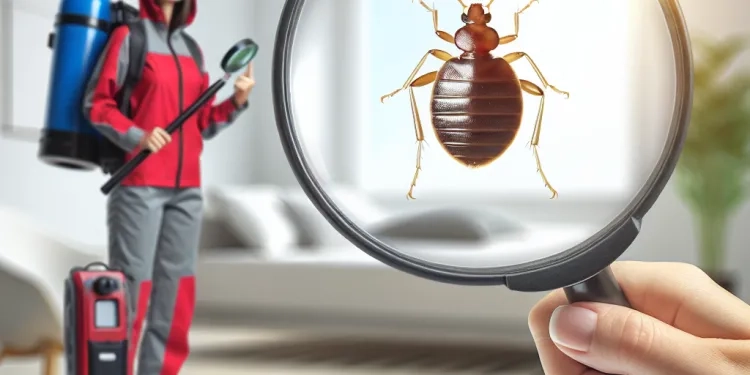
Find Help
More Items From Ergsy search
-
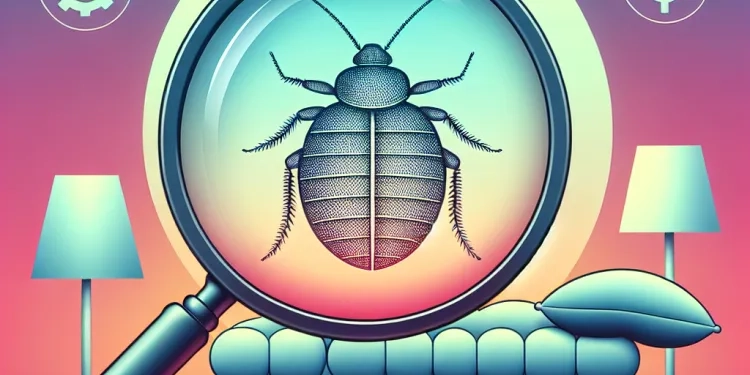
What are bed bugs?
Relevance: 100%
-
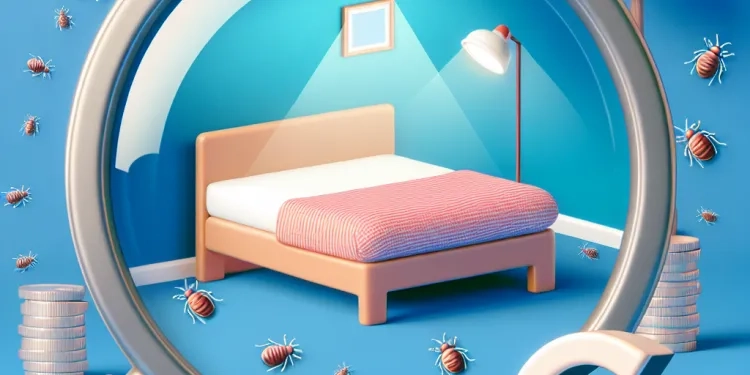
Do bed bugs only live in beds?
Relevance: 100%
-

Bed Bugs / bedbugs
Relevance: 100%
-
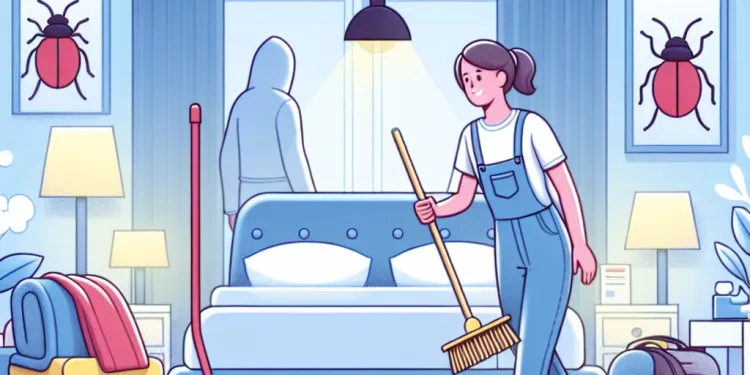
Are bed bugs dangerous?
Relevance: 99%
-
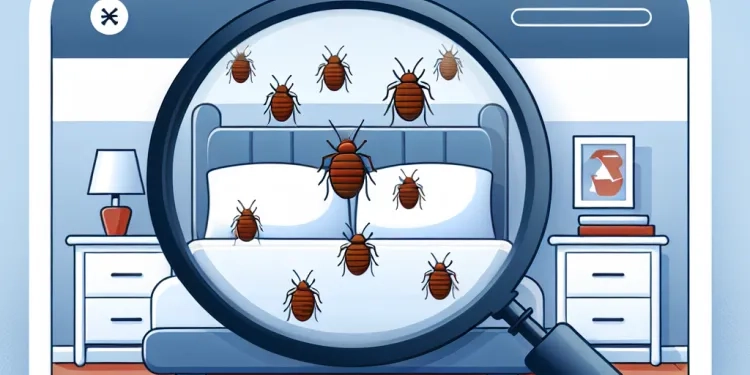
What are the signs of a bed bug infestation?
Relevance: 93%
-
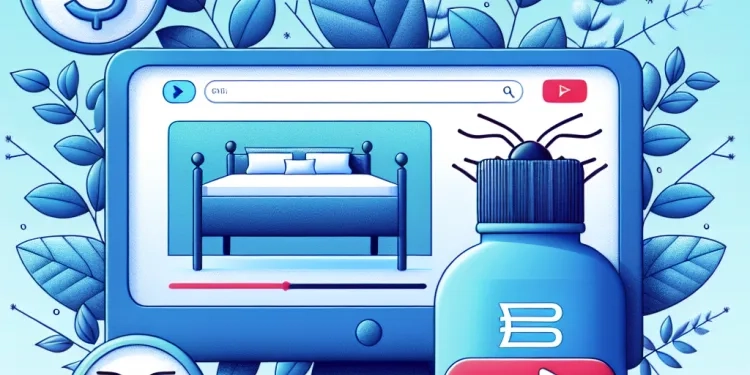
Are there any natural remedies for bed bugs?
Relevance: 92%
-

Why are bed bugs so difficult to eliminate?
Relevance: 92%
-

How do bed bugs enter my home?
Relevance: 91%
-
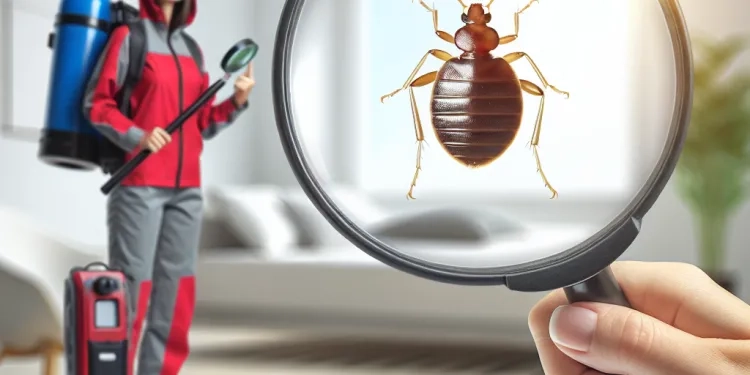
Can I get rid of bed bugs myself?
Relevance: 89%
-
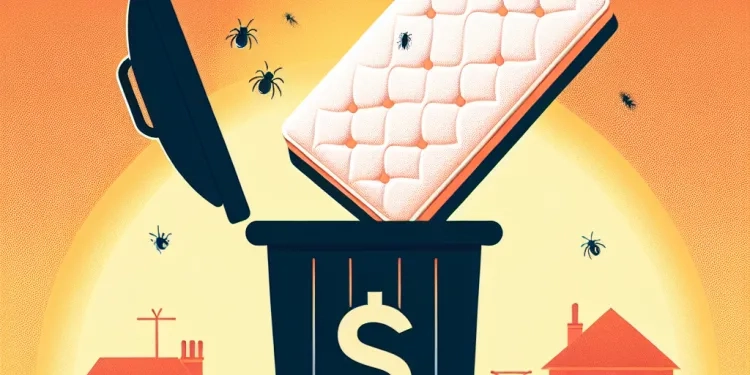
Will disposing of my mattress get rid of bed bugs?
Relevance: 89%
-
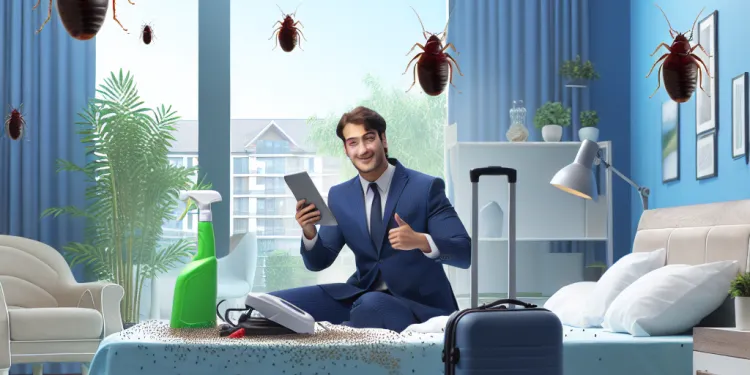
What should I do if I find bed bugs in my house?
Relevance: 88%
-
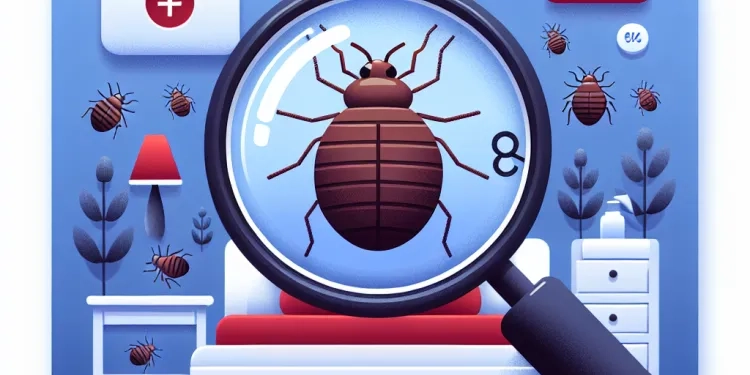
How can I tell if bites are from bed bugs?
Relevance: 86%
-

How can I prevent bringing bed bugs into my home?
Relevance: 86%
-
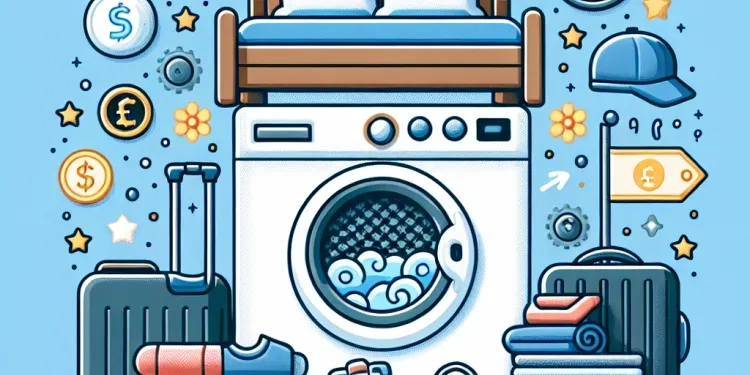
What items should I wash if I have bed bugs?
Relevance: 85%
-
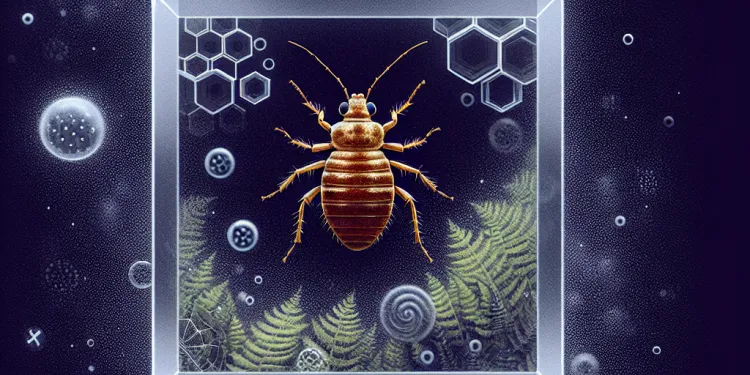
How much does professional bed bug extermination cost in the UK?
Relevance: 82%
-
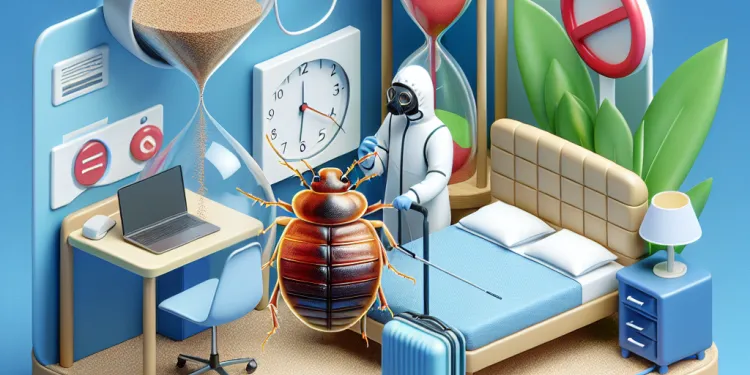
How long does a bed bug extermination process take?
Relevance: 79%
-
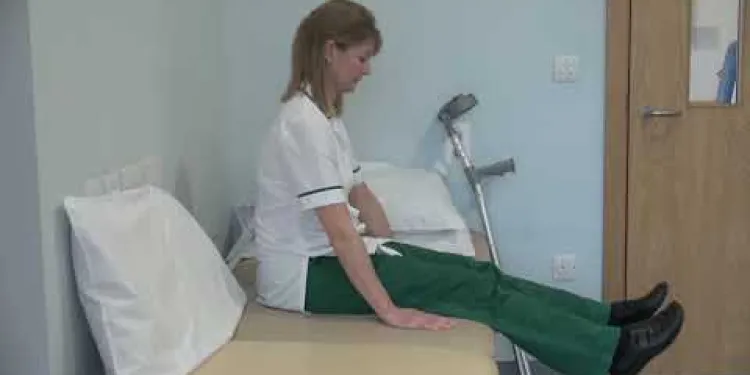
Hip replacement - getting into bed
Relevance: 44%
-
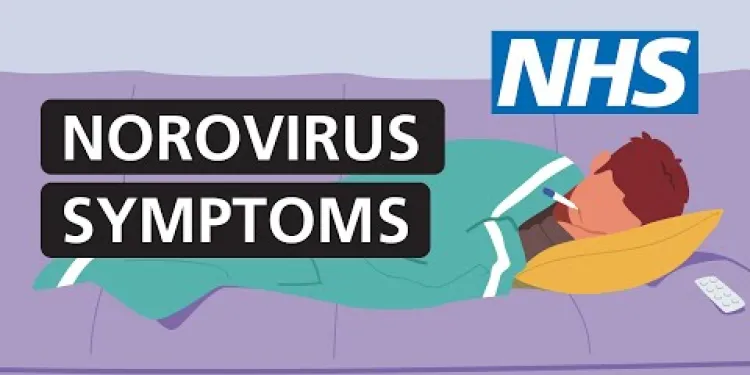
What is norovirus? (Diarrhoea and vomiting bug) | NHS
Relevance: 39%
-
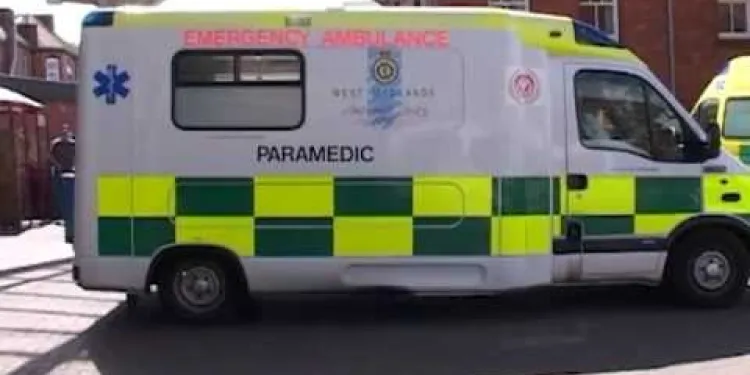
MRSA Bug
Relevance: 34%
-
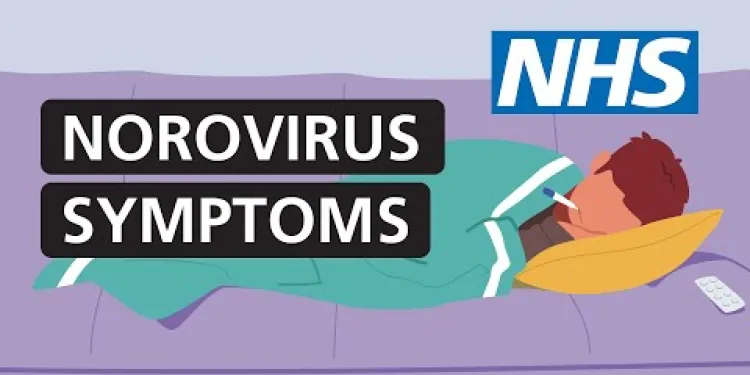
What is norovirus? (Diarrhoea and vomiting bug) | NHS
Relevance: 33%
-

How does screen time before bed specifically affect adolescents?
Relevance: 33%
-
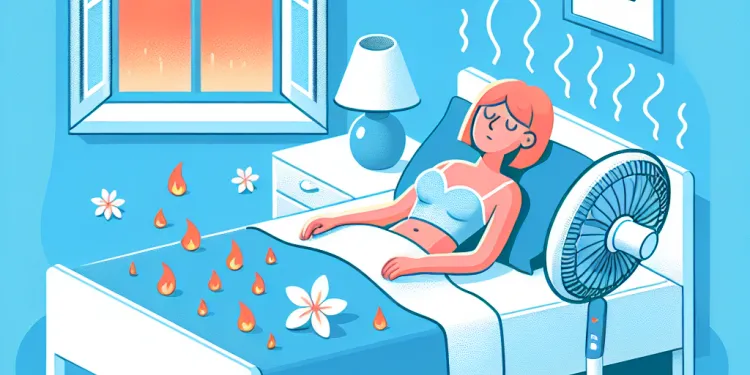
How can I sleep comfortably during a heatwave?
Relevance: 18%
-
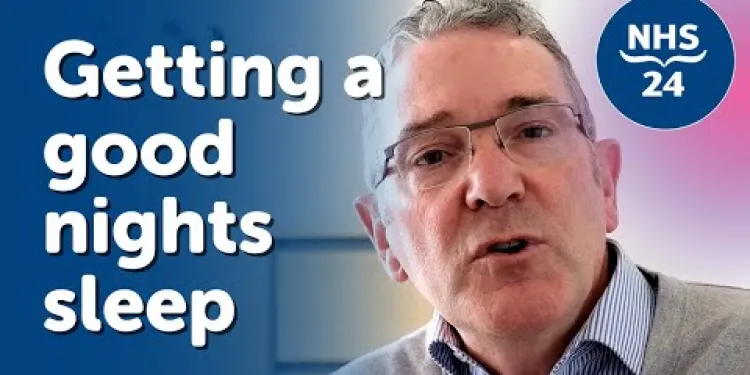
Top Tips to Help You Get a Good Nights Sleep
Relevance: 17%
-

What do pediatricians recommend about baby sleep pillows?
Relevance: 17%
-
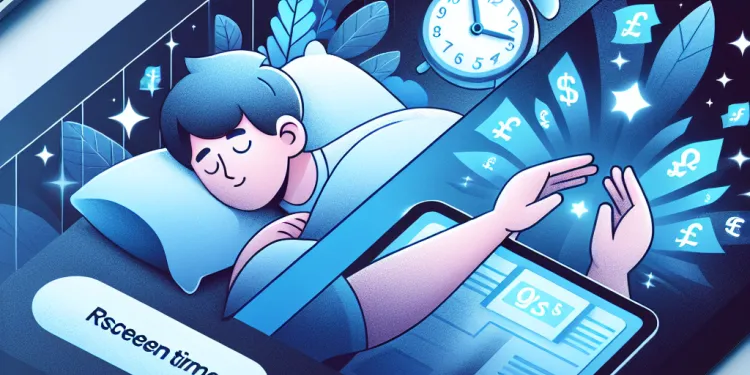
Can reducing screen time improve sleep quality?
Relevance: 17%
-

How does screen time affect sleep quality?
Relevance: 16%
-
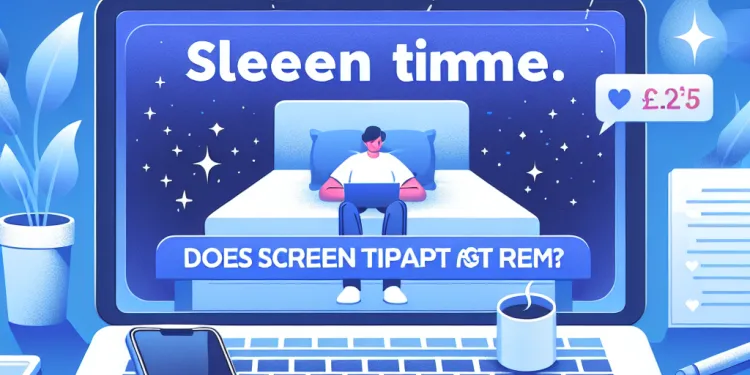
Does screen time impact REM sleep?
Relevance: 16%
-
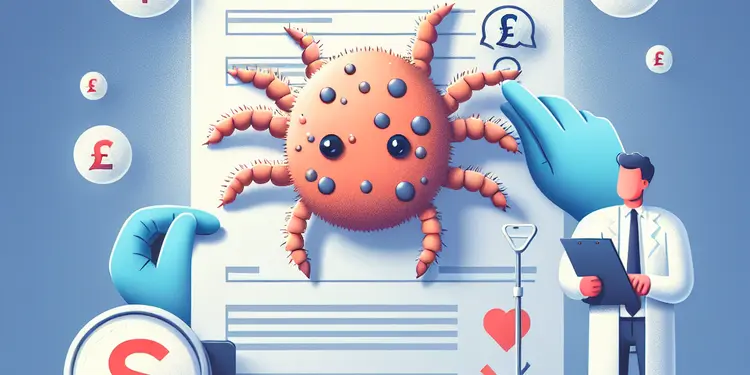
How do you get scabies?
Relevance: 15%
-

Can HIV be transmitted through insect bites?
Relevance: 15%
-

Are there any screen time guidelines recommended for improving sleep?
Relevance: 15%
-

Does screen time affect both sleep onset and sleep maintenance?
Relevance: 15%
-

What is UV radiation?
Relevance: 14%
-

What are scabies?
Relevance: 14%
-

How should household items be cleaned after a scabies infection?
Relevance: 14%
-
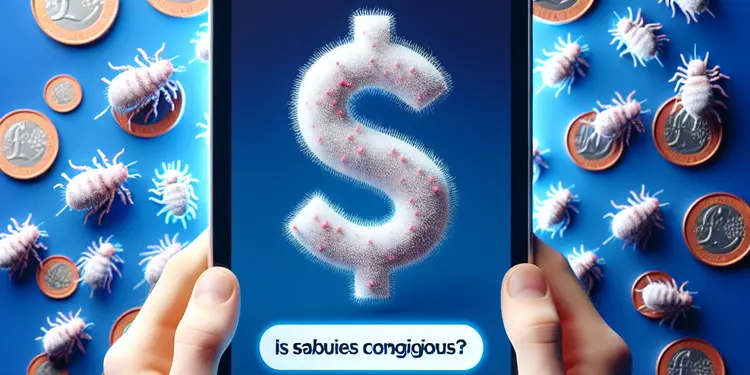
Is scabies contagious?
Relevance: 14%
-

What are some tips for reducing screen time to improve sleep?
Relevance: 14%
-

What specific performance issues led to these refunds?
Relevance: 14%
-
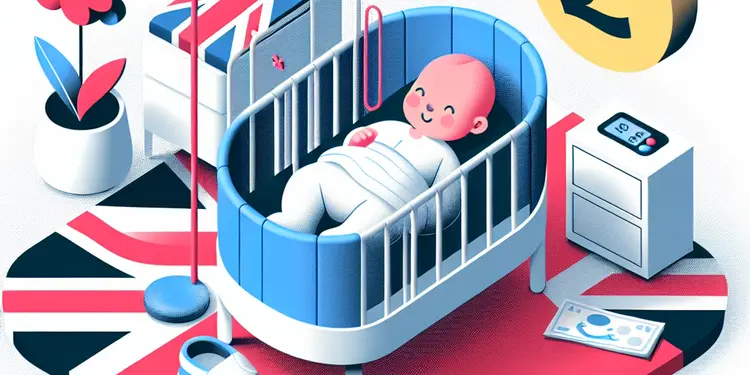
What is the safest sleep environment for an infant?
Relevance: 13%
-
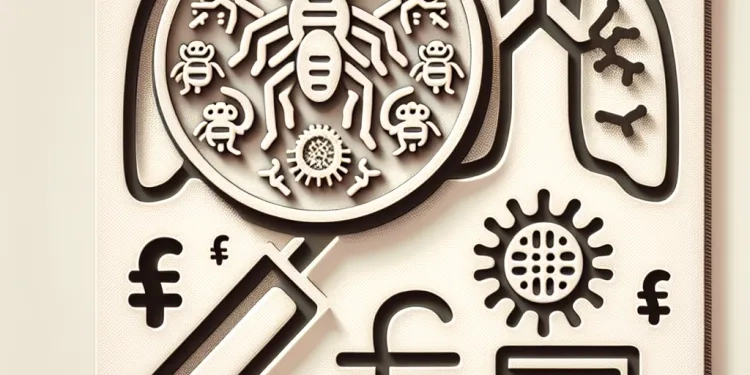
Can dust mites cause asthma and eczema?
Relevance: 13%
-
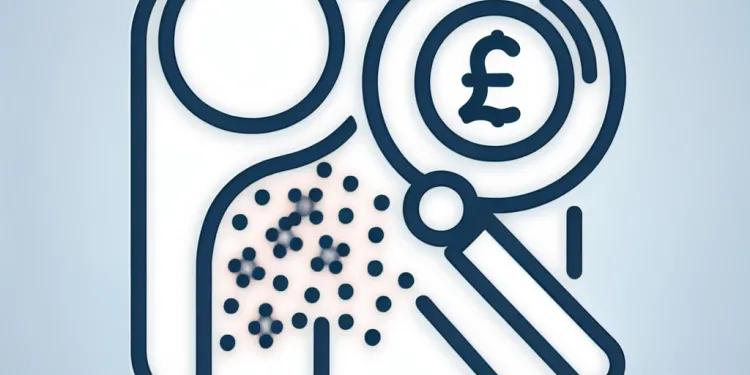
Can impetigo spread to other parts of my body?
Relevance: 13%
Can I Get Rid of Bed Bugs Myself?
Dealing with a bed bug infestation can be a stressful experience. Many people in the UK wonder if it's possible to handle the issue themselves without resorting to professional pest control services. While DIY methods can be effective to a certain extent, a thorough understanding and careful application are vital. Let's explore how you can tackle bed bugs on your own.
Identifying Bed Bugs
The first step to tackling a bed bug problem is to confirm their presence. Bed bugs are small, reddish-brown insects that are typically 4-5 mm long. They tend to hide in mattress seams, bed frames, headboards, and other furniture near beds. Look for signs such as rusty-stained sheets, dark spots (excrement), or shed skins that indicate an infestation.
Initial Cleaning Steps
Start by cleaning and decluttering your living spaces. Remove any unnecessary items, especially those that could serve as hiding spots for bed bugs. Wash bedding, linens, curtains, and clothing in hot water and dry them on the highest dryer setting feasible. Vacuum the bed and surrounding area, ensuring you dispose of the vacuum contents securely outside your property.
Utilising Steam and Heat
Bed bugs are sensitive to both temperature extremes. Using a handheld steamer on mattresses, couch cushions, and other relevant areas can kill bed bugs on contact. Ensure that the steam penetrates all hidden spaces. Similarly, placing infested items in a sealed bag and exposing them to direct sunlight or a hot dryer can help in tackling bed bug populations.
Chemical Treatments
Several insecticides and bed bug sprays are available for domestic use. Products containing pyrethroids, neonicotinoids, or desiccant dusts can be applied to affected areas. It's crucial to follow all safety instructions and avoid over-application, particularly in living spaces. Be aware that some bed bugs might develop resistance, necessitating a mixture of approaches.
Ongoing Monitoring
Even after treatment, keep monitoring for any indication of bed bugs. Place mattress encasements on beds to prevent infestations from recurring. Consider investing in bed bug interceptors or traps installed under bed legs to catch remaining or incoming bugs. Regular inspection is essential to ensure successful eradication.
When to Seek Professional Help
While many minor infestations can be managed with determined DIY efforts, severe cases or persistent issues may require professional exterminators. Pest control experts in the UK can offer more potent treatments and have the experience necessary to handle stubborn infestations thoroughly.
In summary, while it's possible to get rid of bed bugs yourself, it requires dedication, careful application, and potentially combining methods to maximise efficacy.
Can I Get Rid of Bed Bugs Myself?
Getting rid of bed bugs can be hard and stressful. People in the UK often wonder if they can do it themselves without calling pest control experts. You can try doing it yourself if you follow some steps and know what to do. Let's see how you can deal with bed bugs.
Identifying Bed Bugs
The first step is to check if you have bed bugs. Bed bugs are small bugs that are reddish-brown and about the size of an apple seed. They hide in mattresses, bed frames, and furniture near beds. Look for signs like rusty spots on sheets, dark poop spots, or shed skins to know you have bed bugs.
Initial Cleaning Steps
Start by cleaning your home. Get rid of clutter that bed bugs could hide in. Wash your bedding, curtains, and clothes in hot water, and dry them on the hottest setting safely. Vacuum your bed and the area around it. Dispose of the vacuum bag or contents outside your house.
Using Steam and Heat
Bed bugs do not like high temperatures. Use a steamer to clean mattresses and cushions. Make sure the steam gets into all the tiny spaces. You can also put infested items in a bag and leave them in direct sunlight, or use a hot dryer to kill bed bugs.
Chemical Treatments
There are sprays and powders you can use against bed bugs. These should have ingredients like pyrethroids or neonicotinoids. Always read and follow the instructions carefully. Do not use too much, especially inside your home. Some bed bugs are tough and may not be affected by one method, so you might need to try different ones.
Ongoing Monitoring
Keep checking for bed bugs after you treat the area. Use mattress covers to stop bugs from coming back. You can buy special traps for bed legs to catch any remaining bugs. Regular checks are important to make sure the bed bugs are gone.
When to Seek Professional Help
If the problem is very bad or keeps coming back, you might need a professional. Experts in pest control can use stronger methods and have the experience to handle tough infestations.
In short, you can try to get rid of bed bugs yourself by being careful, using different methods, and staying dedicated to the process.
Frequently Asked Questions
Can I rid of bed bugs myself?
Yes, you can attempt to get rid of bed bugs yourself using a combination of cleaning, heat treatment, and chemical solutions, but professional help is recommended for larger infestations.
What is the first step in getting rid of bed bugs myself?
The first step is to thoroughly clean and declutter the affected area to remove adult bed bugs and their eggs.
Can I use heat treatment to kill bed bugs?
Yes, washing infested items in hot water and using a dryer on the hottest setting can help kill bed bugs.
Are there any chemical treatments available for bed bugs?
There are insecticides available, such as bed bug sprays and powders, but they must be used with caution and according to the manufacturer's instructions.
Is it necessary to throw away infested furniture?
Not necessarily, but heavily infested furniture might need to be disposed if treatment is not effective.
How long does it take to get rid of bed bugs myself?
It can take several weeks to completely eradicate bed bugs, depending on the level of infestation and effectiveness of the methods used.
Can a vacuum cleaner help in removing bed bugs?
Yes, a vacuum cleaner can be effective in removing bed bugs from cracks and crevices, but ensure to empty the vacuum bag outside your home.
Are bed bug bites dangerous?
Bed bug bites are not considered dangerous but can cause itching and discomfort. If you experience severe allergic reactions, consult a medical professional.
Is using a bed bug mattress cover helpful?
Yes, bed bug mattress encasements can trap bed bugs inside and prevent new ones from hiding in your mattress.
How can I prevent a bed bug infestation?
Regular cleaning, sealing cracks, and being cautious when traveling or buying second-hand items can help prevent infestation.
Can bed bugs spread diseases?
Bed bugs are not known to transmit diseases, but their bites can cause skin irritation and allergic reactions.
How can I identify bed bugs in my home?
Look for small, reddish-brown bugs, eggs, and dark spots (fecal matter) on bedding, mattress seams, and furniture.
Do bed bugs only infest beds?
No, bed bugs can be found in any areas where people sleep or rest, such as sofas and carpets.
Are essential oils effective against bed bugs?
Some essential oils may repel bed bugs, but they are not generally effective for full eradication.
Should I contact a professional exterminator?
For severe infestations, it is recommended to consult a professional pest control service for effective eradication.
Can I get rid of bed bugs by myself?
Yes, you can try to get rid of bed bugs on your own, but it can be hard. Here are some tips to help you:
- Clean your bed: Wash your sheets, pillowcases, and blankets in hot water. This can help kill bed bugs.
- Use a vacuum: Vacuum your mattress, bed frame, and bedroom floor. This can help remove bed bugs and their eggs.
- Use a steamer: A steamer can help kill bed bugs with heat. Be careful and ask an adult for help.
- Use bug spray: You can buy sprays at the store to help kill bed bugs. Follow the instructions carefully.
- Be patient: Getting rid of bed bugs can take time. You might need to try a few times.
If you need help, ask someone you trust. Sometimes it's a good idea to call a professional to help you. Remember to stay calm and keep trying.
Yes, you can try to get rid of bed bugs by yourself. You can clean, use heat, and some bug sprays. But if there are a lot of bed bugs, it is good to ask a professional for help.
How can I start getting rid of bed bugs by myself?
First, check your bed for bed bugs. Look at your mattress and sheets. Use a flashlight to see better.
If you need help, ask someone you trust to be with you.
You can also use a book with pictures of bed bugs to help you find them.
First, clean up the area really well. Get rid of any mess. This will help you find and remove the bed bugs and their eggs.
Can I use heat to kill bed bugs?
Yes, you can use heat to get rid of bed bugs. Bed bugs do not like hot temperatures. Heat can kill them.
Here are some ways to use heat:
- Use a clothes dryer on hot to kill bed bugs on clothes and bedding.
- Steam cleaners can help. Use them on furniture and carpets.
- Professional heat treatments are also available. You can hire experts to do this.
Tools that can help:
- A thermometer to check the heat.
- A timer to keep track of time.
Tips:
- Keep the area hot for at least 30 minutes.
- Check all rooms and items carefully.
Yes, you can kill bed bugs by washing your things in hot water and using a dryer set to the hottest setting.
Can we use chemicals to get rid of bed bugs?
You can use special sprays to kill bed bugs. Read the label and follow the safety instructions. It is also helpful to ask an adult or a pest expert for advice.
If you find bed bugs, it is a good idea to wash your bedding and clothes in hot water. This helps to kill the bugs.
Use sticky traps to catch bed bugs you might have missed. These are handy tools to help you find out if there are any more bugs.
If you still have trouble, you can call a pest control company. They know how to get rid of bugs safely.
You can use special sprays and powders to get rid of bed bugs. These are called insecticides. Be careful when you use them. Always read and follow the instructions on the packet.
Do I need to get rid of furniture with bugs?
You don't always have to throw away your furniture. But if it has a lot of bugs and the treatment doesn't work, you might need to get rid of it.
How long does it take to get rid of bed bugs by myself?
Getting rid of bed bugs by yourself can take some time. It might take a few weeks or even a couple of months.
Here are some things that can help:
- Check your bed and furniture for bed bugs often.
- Wash bed sheets, pillowcases, and clothes in hot water.
- Use a vacuum to clean where bed bugs might hide.
- Use a special spray or powder made to kill bed bugs.
Be patient and keep trying until the bed bugs are gone!
Getting rid of bed bugs can take a few weeks. How long it takes depends on how many bed bugs there are and how well the ways to get rid of them work.
Can a vacuum cleaner get rid of bed bugs?
A vacuum cleaner can help to suck up bed bugs.
Here are some simple steps to help:
- Use the vacuum on your bed and other places where bed bugs hide.
- Go slowly to catch all the bugs.
- After vacuuming, empty the vacuum bag outside to keep the bugs away.
You might need to try other ways too, like washing your bedding in hot water or using special sprays.
Yes, you can use a vacuum cleaner to suck up bed bugs from small hiding places. But make sure you empty the vacuum bag outside your home.
Are bed bug bites dangerous?
Bed bug bites are not dangerous. They might make your skin itchy or red, but they do not make you sick. If you scratch the bites a lot, you might get a small infection, so try to keep the skin clean.
If you think you have bed bug bites, ask an adult for help. They can help you clean the bites and check for bed bugs in your home.
Some helpful tips are:
- Wash the bitten skin with soap and water.
- Try not to scratch the bites.
- Put a cool, wet cloth on the bites to feel better.
You can also use a cream that stops itching. Ask an adult if you need help finding one.
Bed bug bites are not usually dangerous. But they can make you itchy and uncomfortable. If you have a bad allergic reaction, it is important to see a doctor.
Do bed bug covers for mattresses help?
Yes, special covers for your mattress can keep bed bugs trapped inside. This helps stop new bugs from getting into your mattress.
How can I stop bed bugs from getting into my home?
Bed bugs are tiny bugs that live in beds and bite people. Here is how you can stop them:
- Check your bed: Look at your mattress and sheets for tiny bugs or small black spots.
- Keep your home clean: Vacuum your floors and clean your room often.
- Be careful with used furniture: If you get a used bed or chair, check it for bed bugs first.
- Use a mattress cover: Put a cover on your mattress that bed bugs cannot get through.
- When you travel: Check hotel beds and keep your suitcase closed when not in use.
If you need help, ask someone you trust to check with you.
To stop bugs from getting into your home, keep things clean, fix any holes, and be careful when you travel or buy used stuff.
Do bed bugs make people sick?
No, bed bugs do not make people sick. They bite and it can feel itchy. If you scratch too much, your skin might get sore.
If you need help, you can ask someone you trust or talk to a doctor. It's good to tell an adult if you find bed bugs.
Bed bugs do not spread diseases. But when they bite, you might get itchy skin or have an allergic reaction.
How do I know if I have bed bugs at home?
Check for tiny, reddish-brown bugs and eggs on your bed, mattress seams, and furniture. Also look for dark spots, which might be bug poop.
Do bed bugs only live in beds?
Bed bugs can live in many places, not just beds. They might hide in:
- Carpets
- Sofas
- Clothes
- Cracks in walls
To help understand better:
- Use pictures to see where bed bugs can hide.
- Ask someone to read with you and explain.
No, bed bugs can be in any place where people sleep or rest. This can be on sofas and carpets too.
Do Essential Oils Work on Bed Bugs?
Bed bugs are tiny bugs that live in beds. They can bite and make your skin itchy.
Some people use essential oils to try to get rid of bed bugs. Essential oils are special oils from plants that smell nice.
We are not sure if these oils really work to stop bed bugs. It might be a good idea to ask an expert or use other ways to help get rid of them.
Use safe ways to get rid of bed bugs. Talk to a grown-up or someone who knows a lot about it.
Some plant oils might keep bed bugs away. But they don't work well to get rid of all the bed bugs.
Should I call a bug expert for help?
Are there lots of bugs in your home? It can be hard to get rid of them on your own. Here are some simple tips:
- Try to clean the area where you see bugs.
- Use bug spray from the store.
If the bugs keep coming back, it might be time to call a bug expert to help you. They know how to make the bugs go away for good.
You can ask family or friends to help you find a good bug expert.
If there are a lot of pests, it is a good idea to ask a pest control expert for help to get rid of them.
Useful Links
This website offers general information and is not a substitute for professional advice.
Always seek guidance from qualified professionals.
If you have any medical concerns or need urgent help, contact a healthcare professional or emergency services immediately.
Some of this content was generated with AI assistance. We’ve done our best to keep it accurate, helpful, and human-friendly.
- Ergsy carfully checks the information in the videos we provide here.
- Videos shown by Youtube after a video has completed, have NOT been reviewed by ERGSY.
- To view, click the arrow in centre of video.
- Most of the videos you find here will have subtitles and/or closed captions available.
- You may need to turn these on, and choose your preferred language.
- Go to the video you'd like to watch.
- If closed captions (CC) are available, settings will be visible on the bottom right of the video player.
- To turn on Captions, click settings .
- To turn off Captions, click settings again.
More Items From Ergsy search
-

What are bed bugs?
Relevance: 100%
-

Do bed bugs only live in beds?
Relevance: 100%
-

Bed Bugs / bedbugs
Relevance: 100%
-

Are bed bugs dangerous?
Relevance: 99%
-

What are the signs of a bed bug infestation?
Relevance: 93%
-

Are there any natural remedies for bed bugs?
Relevance: 92%
-

Why are bed bugs so difficult to eliminate?
Relevance: 92%
-

How do bed bugs enter my home?
Relevance: 91%
-

Can I get rid of bed bugs myself?
Relevance: 89%
-

Will disposing of my mattress get rid of bed bugs?
Relevance: 89%
-

What should I do if I find bed bugs in my house?
Relevance: 88%
-

How can I tell if bites are from bed bugs?
Relevance: 86%
-

How can I prevent bringing bed bugs into my home?
Relevance: 86%
-

What items should I wash if I have bed bugs?
Relevance: 85%
-

How much does professional bed bug extermination cost in the UK?
Relevance: 82%
-

How long does a bed bug extermination process take?
Relevance: 79%
-

Hip replacement - getting into bed
Relevance: 44%
-

What is norovirus? (Diarrhoea and vomiting bug) | NHS
Relevance: 39%
-

MRSA Bug
Relevance: 34%
-

What is norovirus? (Diarrhoea and vomiting bug) | NHS
Relevance: 33%
-

How does screen time before bed specifically affect adolescents?
Relevance: 33%
-

How can I sleep comfortably during a heatwave?
Relevance: 18%
-

Top Tips to Help You Get a Good Nights Sleep
Relevance: 17%
-

What do pediatricians recommend about baby sleep pillows?
Relevance: 17%
-

Can reducing screen time improve sleep quality?
Relevance: 17%
-

How does screen time affect sleep quality?
Relevance: 16%
-

Does screen time impact REM sleep?
Relevance: 16%
-

How do you get scabies?
Relevance: 15%
-

Can HIV be transmitted through insect bites?
Relevance: 15%
-

Are there any screen time guidelines recommended for improving sleep?
Relevance: 15%
-

Does screen time affect both sleep onset and sleep maintenance?
Relevance: 15%
-

What is UV radiation?
Relevance: 14%
-

What are scabies?
Relevance: 14%
-

How should household items be cleaned after a scabies infection?
Relevance: 14%
-

Is scabies contagious?
Relevance: 14%
-

What are some tips for reducing screen time to improve sleep?
Relevance: 14%
-

What specific performance issues led to these refunds?
Relevance: 14%
-

What is the safest sleep environment for an infant?
Relevance: 13%
-

Can dust mites cause asthma and eczema?
Relevance: 13%
-

Can impetigo spread to other parts of my body?
Relevance: 13%


